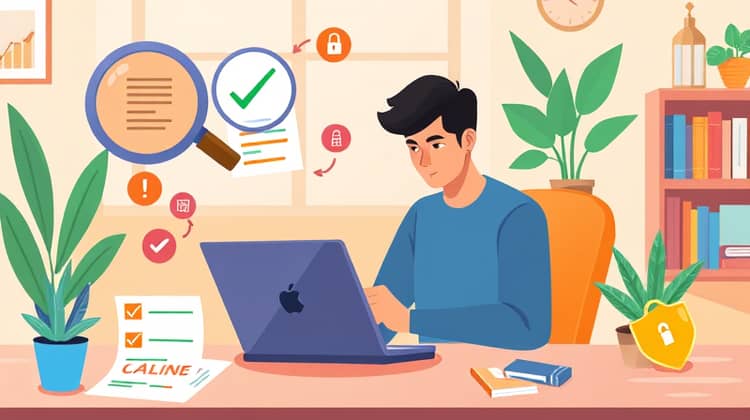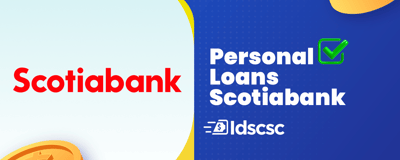In today's financial climate, personal loans can be a lifesaver for individuals facing unexpected expenses or those seeking to consolidate debt. However, the rise in demand for personal loans has also brought about an increase in scams targeting unsuspecting borrowers. Understanding how to identify and avoid personal loan scams is crucial for anyone considering borrowing money.
This article explores essential steps you can take to protect yourself from falling prey to fraudulent lenders. By being informed and vigilant, you can navigate the loan landscape more confidently and make sound financial decisions.
From recognizing blatant signs of scams to taking precautionary measures, these tips will help you safeguard your financial wellbeing and ensure that your borrowing experience is both safe and beneficial.
1. Recognize the Signs of a Scam

To protect yourself from personal loan scams, it's important to know what red flags to look for. Many scammers use tactics that may seem believable at first but can quickly unravel upon closer inspection. If you know what to watch for, you'll be better equipped to avoid these schemes.
- Lenders that guarantee approval regardless of credit history.
- Requests for upfront fees before the loan is disbursed.
- Pressure tactics to sign contracts immediately.
- Unprofessional websites or email addresses that look suspicious.
- They ask for personal or financial information (like Social Security numbers) without proper documentation.
2. Research the Lender

Before taking out a loan, it’s crucial to do your homework on any lender you are considering. Researching the lender can reveal a lot about their reliability and trustworthiness.
Look for reviews from previous borrowers, check if the lender has a valid physical address, and consult customer protection agencies like the Better Business Bureau to see if any complaints have been filed against them.
3. Don’t Pay Upfront Fees

Scammers often ask for upfront fees, which can be a major warning sign of fraudulent activity. Legitimate lenders rarely require any payment before the loan is approved and disbursed.
If a lender insists on upfront fees, it’s often a tactic to get money from you without ever providing a loan.
4. Protect Your Personal Information

When applying for a personal loan, you'll need to provide some personal and financial information. However, you should be cautious about sharing this data. Legitimate lenders operate under strict privacy laws and will only request necessary information.
Be wary of lenders who ask for information like your bank account number, credit card details, or Social Security number without a secure means of transmission.
5. Read the Fine Print

Before signing any loan agreement, it’s essential to read the fine print. Some lenders may bury unfavorable terms in lengthy agreements that can be overlooked easily.
Pay attention to interest rates, fees, repayment terms, and any penalties that may apply. Never hesitate to ask questions or request clarification if anything is unclear.
- Interest rates that are significantly higher than the average market rates.
- Unclear repayment terms that seem confusing or overly complicated.
- Additional charges that are not disclosed up front.
- Any clauses that suggest a lender can change the terms of the loan at any time.
6. Avoid “Guaranteed” Loans

Any lender promising 'guaranteed' loans without thorough documentation or requirements should raise a red flag. Many legitimate lenders will assess your creditworthiness before offering loan terms.
Beware of high-pressure sales tactics that push for immediate commitment.
7. Be Cautious with Online Lenders

Online loans can be convenient, but they also have their risks. If you choose to work with an online lender, do thorough research and ensure the lender has a reputable presence.
Check for licensing, read online reviews, and verify that the website uses secure methods for processing transactions.
- Look for a physical address and contact information for support.
- Read third-party reviews and ratings.
- Ensure they have a legitimate and secure website.
8. Trust Your Instincts

If something feels off about a lender or their terms, don't ignore that gut feeling. Your instincts can be a powerful tool in identifying potential scams.
Trusting your own judgment can sometimes be the best line of defense against fraud.
9. Report Scam Attempts

If you encounter what you believe to be a personal loan scam, report it to the appropriate authorities. This can help protect other potential victims.
You can report scams to consumer protection agencies, local law enforcement, and, if applicable, the platform where the scam occurred.
- Federal Trade Commission (FTC)
- Consumer Financial Protection Bureau (CFPB)
- Your state attorney general's office
10. Educate Yourself and Others

Staying informed about the latest scams can significantly reduce your risk of falling victim to them. Educate yourself on common loan scams and share this knowledge with friends and family.
Discussion can raise awareness and help others recognize the signs of a scam before they get involved.
Conclusion

Personal loan scams can lead to devastating financial consequences if not properly avoided. By following the tips outlined in this article, you empower yourself to make informed borrowing decisions.
Staying vigilant and educated on how to protect your finances can help you navigate the lending landscape safely and avoid falling victim to scams.














